- Home
- B. V. Larson
Annihilation (Star Force Series) Page 2
Annihilation (Star Force Series) Read online
Page 2
I knew something was happening up there, but I had no idea what those heartless, glittering gods had in store for me.
-2-
Just before dawn, we left Eden-8. Sandra and I boarded a destroyer and were taken swiftly up into the sky. The ship whisked us away toward the outer rim where Welter Station circled the coldest rock in the star system.
On the way, I kept checking every few hours for changes in the situation—any kind of update from Thor would be nice. But there was nothing. No new information from our sensors, scout ships, spy-probes or the Crustaceans themselves. The only measurable data that came in was an ominous detail: the temperature of the oceans on Yale had risen another tenth of a degree. This was neither encouraging nor enlightening.
We didn’t get a proper night’s sleep on the long haul out to the battle station. My mind and my command staff couldn’t help playing out grim scenarios. Could it be a natural disaster? Volcanic action? Some kind of civil war? We just didn’t know.
During the final hours of the journey we drew closer to the station and began decelerating hard. For several long hours, the destroyer shuddered and maintained a steady, teeth-throbbing four Gs of braking thrust. That’s what space flight consisted of for Star Force veterans: endless sessions of pulling hard G-forces as we accelerated up to cruising speed then turned around and decelerated just as powerfully so we could dock rather than smashing into the landing bays.
I’d had plenty of time to review what little we knew, but not enough input to decide on a course of action. Since I didn’t have much to go on, I focused on what I could do with clarity of purpose: shore up our own defensive posture.
I was feeling paranoid, and I had very good reasons for it. The last time the Crustaceans had sent us a cryptic message they’d sent an emissary ship along with it. The ambassador inside had blown herself up and the EMP blast had disrupted my battle station, nearly crippling it. If the Crustaceans were involved in some kind of new conflict, my first concern had to be the security of my own backyard.
I began reviewing our defenses for the tenth time since I’d left Shadowguard. Fortunately, the Eden system only had two points of entry—at least that we knew of. There were two rings that connected this star system to others. Each allowed instantaneous interstellar travel to another system.
One path led to the Helios system, which was occupied and patrolled by our allies the Worms. Beyond Helios and farther down the chain of rings was the Solar System. Unfortunately, Earth could not be considered friendly at this time.
Still, with the Worms and several systems serving as a buffer, I didn’t fear a sneak attack from that direction. In the other direction was a single known system: the Thor System. In my view, it was more dangerous than Earth. If the enemy came at us from that flank we would have only a day or two of warning at best.
We knew there was at least one other ring that connected Thor to some unknown location owned by the Macros. The machines had launched attacks on us via that ring several times.
Judging the Thor system and the unknown numbers of Macro fleets beyond it to be the greater threat, I’d built a battle station on the border, right next to the ring that connected Eden to Thor. Known as Welter Station, the structure had survived its first battles, but only barely.
Things had changed a lot since I’d first built the battle station. She was monstrous now, and instead of being nearly deserted, the fortress teemed with Star Force personnel. The refugees from Earth had stepped up and manned the station with a crew of over a thousand, which was what it had been originally designed for.
“This thing is huge, Colonel,” Commodore Miklos said when the station came into visual range. His tone indicated he believed the battle station was too big.
The Commodore had joined us on this trip out to the border. He was my exec, and overall second in command.
I nodded, but avoided Miklos’ eye. “I’m sure you’ve seen it before.”
“Of course I have. But it’s bigger—the volume is three times greater than what was proposed in the original design documents.”
I nodded again, but said nothing. Miklos was one of my best. I’d come to trust and rely on his judgment and loyalty over the last few years, but that didn’t mean I always listened to his frequently-offered advice. He was Fleet and therefore wanted every hour of production to go into building more ships. It was only natural for him to view any other expenditure as counterproductive.
He looked at me, frowning. “Why did you put so much effort into rebuilding it—into making it bigger? I thought it was a failure.”
“A failure? Hardly.”
“The first battles this monstrosity was involved in were not promising. It was pushed over like a tin can. A giant tin can.”
I felt a sensation of growing annoyance with him, but I tried to keep my reaction off my face.
“I was alarmed by how easily our enemies circumvented this behemoth station during her last action,” I said. “I freely admit that the station did not perform optimally in combat.”
“If the station can’t defend itself, it is useless, Colonel.”
“It can defend itself,” I snapped back at him, my voice rising in volume. “It took out a great number of ships in its first engagement.”
Miklos fell to brooding quietly. After a minute or two, I heaved a sigh.
“All right,” I said. “I admit, I took a gamble by putting so much of our resources out here at this outpost. After its relative failure in previous engagements, I felt I had a decision to make: either to put the station on the back-burner and build fleets instead, or to expand its capabilities.”
Miklos nodded slowly. “I understand completely, sir. You doubled your bet.”
“Yes. I chose to double-down.”
Miklos didn’t appear surprised. He did look concerned, however. He began to list reasons why ships were superior to fixed fortifications even though fortresses were more cost-effective.
“Mobility is a force-multiplier,” he lectured me. “Big guns do no one any good if they aren’t able to reach the critical battle. Historically, fortresses have always fallen to mobile forces. The Maginot Line, for instance…”
I rolled my eyes. I’d taken his lecture as good-naturedly as I could up until this point, but now he’d annoyed me enough to shut him down.
“The Maginot Line?” I demanded incredulously. “Let me assure you, Commodore, this station won’t go down in the history books as ‘Rigg’s Greatest Folly’. Over recent months, while Crow has been licking his wounds back on Earth, I’ve assumed the Macros have been building another invasion fleet. To meet that inevitable threat, I shored up this battered station. That’s all there is to the story.”
Miklos fell quiet again. He wasn’t pouting, however. I knew him too well to believe his feelings could be hurt by a scoffing tone in my voice. Unfortunately, I also knew his opinions hadn’t been swayed by my little speech. Not in the slightest. He was simply being polite and biding his time to make his case again. The man could be relentless.
We went back to watching the station swell as we rapidly drew closer. The last time I’d been out here the station’s primary characteristic had been the asteroid rock that armored the central torus. That had drastically changed. I’d captured and added a new asteroid to the station to create more mass. This new section was hollowed-out; we’d leached the metals from it and left the stone as armor. The surface of the entire thing was dotted by equipment embedded into the natural rock. Instead of occasional battlements and sensor arrays that resembled outcroppings of metal, I’d added an entirely new superstructure that formed a thick band around the center of the station. The structure was vaguely disk-shaped, and the crewmen had come to call it “the saucer”.
The new battlements were anything but fragile, however. They were built with heavy structural components, mostly steel and yard-thick polymers.
Inside the saucer, clusters of weaponry were closely massed and capable of incredible firepower. The saucer was
encrusted with missile batteries, beam turrets, railgun emplacements and more.
I broke the silence with Miklos first. “You should learn more about what this station can do, Commodore, before you scoff at it.”
“I do not recall making any scoffing sounds.”
“No, but your tone makes your opinions self-evident. Please turn your attention to the most innovative of the additions: the new fighter bays. From each of seven bays, a wing of fighters can be launched within minutes of identifying a threat.”
Miklos nodded thoughtfully, arching his eyebrows. “I’ve read the reports on the fighter bays, but the technology is unproven.”
“We’ve seen them in action, on the side of the Empire,” I said, struggling to keep my voice even. “My fighters are based on their designs.”
“What is the strategic advantage of these fighters?”
“After the Lobsters disabled this base with a single well-place bomb, I decided that a localized mobile defense was a good idea. The fighter wings are under orders to scramble with paranoid regularity. A squadron or two is always on orbital patrol. Even if we do get sucker-punched again, all our eggs won’t be in a single basket. The fighters are there to harass any approaching enemy. If the station is disabled again, they will provide some defensive capability.”
Miklos looked interested, but far from pleased. I knew he considered a fighter to be a type of ship, even if they had a limited range. To Miklos, any ship was a good ship. But he would rather have a more mobile force.
“May I suggest something, Colonel?”
I nodded, knowing I was going to hear his ideas eventually, whether I wanted to or not.
“I’m thinking about the current situation,” he said. “In the coming days, we might want to move to the Crustacean homeworlds to help them. We have a lot of new armament here at the battle station, but the water-moons are out of range. Perhaps we could produce carrier vessels to transport the new fighter wings.”
“You’re proposing that we strip the fighter wings from the station and use them as a mobile force assigned to these carriers?” I asked.
“Temporarily, yes. We could put the carriers into production immediately. We would not have to build the fighters, only the carriers. We could do that fairly quickly, as they would only have to have a large structure and engines.”
“What about armament?” I asked.
“No weapons would be required on a carrier. The fighters would be their weapons.”
I considered his idea. I glared at the growing image of the battle station. It bristled with weaponry and appeared invincible from space. Despite its strength, I wasn’t excited about the idea of weakening this monster I’d built. As it was, it was an absolute barrier to entry into the Eden system. With it standing here on watch, I felt one of my flanks was secure. On the other hand, if I was going to have to send my ships out into a hostile system, I would want those fighters to cover my fleet.
Miklos seemed to sense my indecision. He sidled closer to me and continued with his arguments.
“We could use standard cruiser engines and structure. No redesign necessary. They would probably be slower-moving, but they could serve as strategic platforms. Think of them as flying bases, able to move in and provide an anchor for the fleet wherever you wish. In this situation, they could orbit the Thor gas giant and cover all three inhabited moons.”
I thought about it. Really, it did make sense.
“All right,” I said at last. “I’ll go talk to Marvin and discuss a design and how long it would take to assemble such a vessel. I’m not sure we’ll have time to pull it off, however. If we’re going to save these Lobsters from whatever is killing them, we’ll have to move fast.”
Miklos handed me a computer tablet. I glanced down at it.
“What’s this?” I asked.
“I took the liberty of running some numbers. Also, key components are already in preproduction. As we’ve moved some of the duplicators to the battle station, I thought we might as well get a head start.”
I glared at the tablet. I was angry, but at the same time I didn’t want to quell initiative taken by my staff. I reminded myself that delegation of authority was part of successful leadership. That part had never come easily for me.
I calmed down with an act of will and looked at what he’d given me. The numbers were not too presumptive. He’d changed standing production orders, but only directed the duplicators to construct components that were useful as spare parts or for any fleet-support ship we might care to build. Even if I’d shot down his ideas, the production wouldn’t be wasted.
I nodded and handed the tablet back. “I’m surprised you put this into motion so quickly. And without full approval. But, I can see that you’ve done it in a way that does not disrupt standing orders. I approve of the action. Continue.”
Miklos beamed. It was rare his bearded face smiled, and I was glad to see the expression. I realized he’d been sweating my decision and fearing a possible reprimand. I was glad I didn’t have to chew him out. As a top leader, I had to be careful. A few words from me could crush a spirit. I wasn’t really worried about having that effect on Miklos, but I knew I’d done it to others in the past.
I left the bridge and went to my private quarters. Sandra was there, already strapped onto an acceleration couch. I grunted and strained as I got into place beside her. In order to maximize our speed we’d applied most of the ship’s power to the engines, rather than niceties such as the gravity stabilizers. I was really feeling the Gs today.
Sandra worked her tablet controls as I got into place for the final burn. The ship had to go to full thrust to slow us down enough for docking. There were always jarring, last second adjustments.
Sandra caused the forward screens over our acceleration couches to light up. The battle station loomed. It was a dark hulk in space, sprinkled with gleaming lights. It resembled a bristling sea anemone as much as anything else I could think of. Batteries of railguns, beam turrets and missile silos dotted the uneven surface.
“Why did you rebuild this thing, Kyle?” Sandra asked me.
I made a sound that was somewhere between a sigh and a grunt. I felt I’d answered this sort of question enough today already.
“I’m a sucker for big, cheap defenses,” I said. “I looked at it, and I just couldn’t come up with a better way to expend our resources and get more firepower out of each nut and bolt.”
She nodded, unsurprised. “It failed the first time, but you still believe in it?”
“Absolutely.”
“But what if the enemy comes from the other direction next time—from Earth?”
“Earth was trashed less than a year ago. So was every player in this game. But I know one thing about the Macros: they can rebuild amazingly fast. I decided to put most of our resources into stopping them first.”
“Are you sure they’re the greater threat?”
I nodded. “Those alien machines would exterminate us all if they could. Crow would only enslave us.”
Sandra gave me a flickering smile. “Encouraging,” she said.
I guess she didn’t like the fact that we were surrounded by enemies. We held Eden, and had a foothold in the Helios system. But that was the extent of our influence. I’d stopped patrolling the Lobster system and Alpha Centauri long ago due to lack of resources.
“I hope you’ve done it right this time,” she said sincerely.
“So do I.”
After this short conversation, I went back to rechecking data I’d already rechecked, scanning for new details that I might have missed, and which I pretty much knew weren’t there. It was agonizing going into a conflict without intel. I’d done it before, but I hated it just as much today as I had the first time. How do you plan and prepare for the unknown?
I guessed that recent military leaders back on Earth over the last century had had it pretty good. Back in the days of planet-wide satellite coverage and Cold War intel, there were years of research and planning to back
up anything you encountered. When the Soviets made a move, NATO was rarely surprised. They’d gamed out everything. Orders were already in a vault, ready to be distributed within hours.
Those days were gone. Out here on the frontier of space, meeting new species and new threats every few months, I had to fly by the seat of my pants most of the time. My military decisions were based on guesswork as much as anything else. I’d never even seen the next system in the chain of rings, the one the Macros appeared to be coming from. We’d sent in probes of course, stealthy robotic things that we’d been sure would evade detection long enough to employ passive sensors and scan the environment.
None of these probes had ever returned. The Macro system beyond the ring in the Thor system remained to this day a mysterious black hole in our knowledge. Because of this, we had to operate as if an attack was coming from that sector at any moment. We had to assume the worst, because we had no idea what the truth was.
I was reminded historically of the colonial period in Earth’s history. I felt akin to the explorers and colonial governors of centuries past. They had small garrisons on wild coastlands. All around them local native populations simmered with resentment. Worse, other colonial powers or out-and-out pirates might arrive on any given day to raid their settlements or even conquer them. Back then, there weren’t any satellites or instantaneous transmissions, and the distances were comparably huge. It took months to voyage home, possibly a year between requesting assistance and getting it from your home country. I was in a similar situation. Effectively, we were on our own, and we had no idea what was going to come over the horizon.
By the time we docked, I was ready for action. I jumped off the couch and suited up. Sandra was right behind me when I hit the airlock. I was unsurprised to find Miklos already there, waiting for us.
The door swished open, and another familiar sight met my eyes. It was Marvin in all his unholy, metallic glory.
-3-

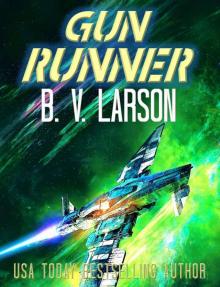 Gun Runner
Gun Runner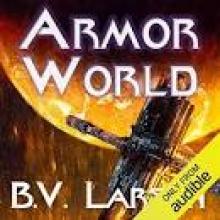 Armor World
Armor World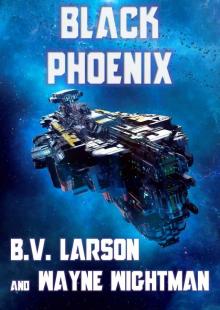 Black Phoenix
Black Phoenix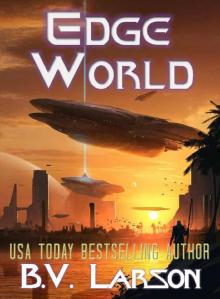 Edge World (Undying Mercenaries Series Book 14)
Edge World (Undying Mercenaries Series Book 14)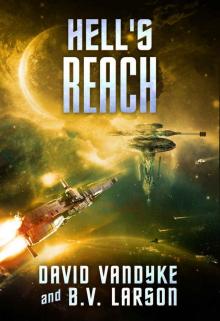 Hell's Reach (Galactic Liberation Series Book 6)
Hell's Reach (Galactic Liberation Series Book 6)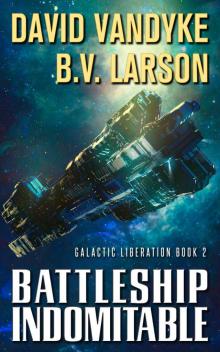 Battleship Indomitable
Battleship Indomitable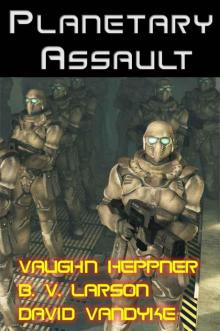 Planetary Assault (Star Force Series)
Planetary Assault (Star Force Series)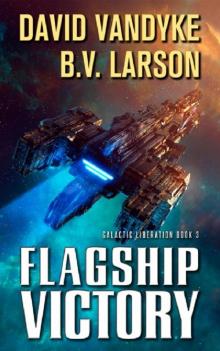 Flagship Victory (Galactic Liberation Book 3)
Flagship Victory (Galactic Liberation Book 3)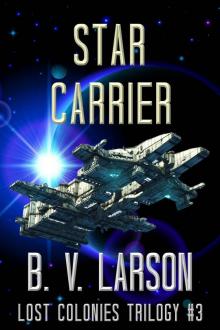 Star Carrier (Lost Colonies Trilogy Book 3)
Star Carrier (Lost Colonies Trilogy Book 3)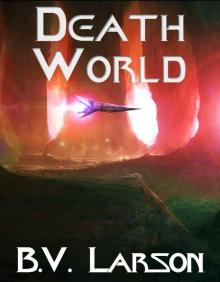 Death World (Undying Mercenaries Series Book 5)
Death World (Undying Mercenaries Series Book 5)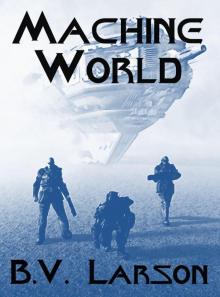 Machine World (Undying Mercenaries Book 4)
Machine World (Undying Mercenaries Book 4) Mech 2
Mech 2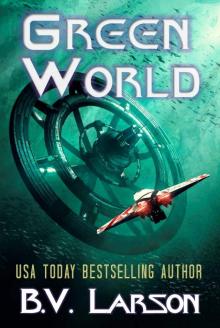 Green World
Green World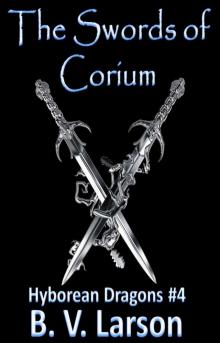 The Swords of Corium
The Swords of Corium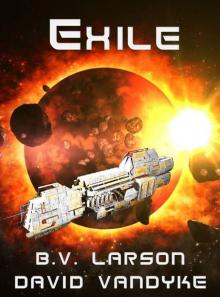 Star Force 11: Exile
Star Force 11: Exile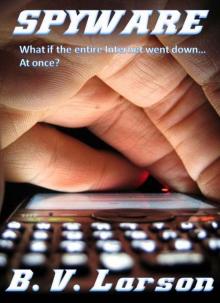 SPYWARE BOOK
SPYWARE BOOK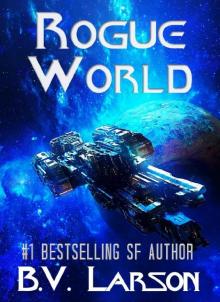 Rogue World (Undying Mercenaries Series Book 7)
Rogue World (Undying Mercenaries Series Book 7)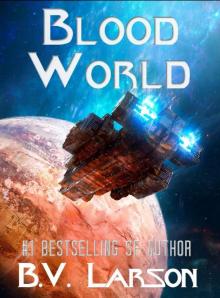 Blood World (Undying Mercenaries Series Book 8)
Blood World (Undying Mercenaries Series Book 8)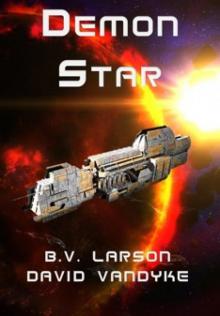 Demon Star
Demon Star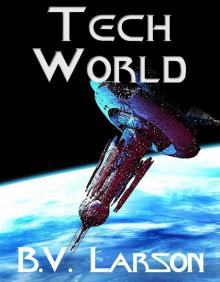 Tech World (Undying Mercenaries Series)
Tech World (Undying Mercenaries Series)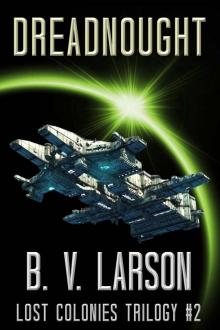 Dreadnought (Lost Colonies Trilogy Book 2)
Dreadnought (Lost Colonies Trilogy Book 2) Shifting
Shifting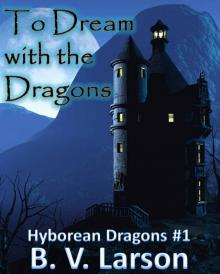 To Dream with the Dragons (Hyborean Dragons)
To Dream with the Dragons (Hyborean Dragons)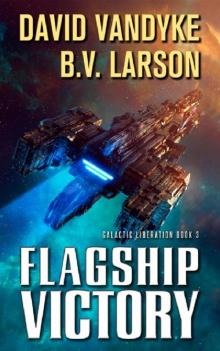 Flagship Victory
Flagship Victory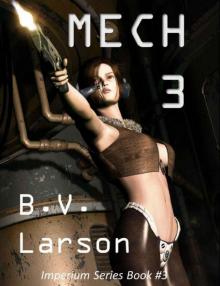 Mech 3: The Empress
Mech 3: The Empress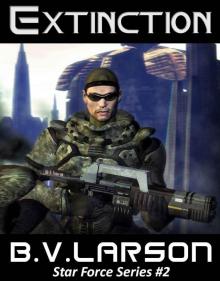 Extinction Ebook Full
Extinction Ebook Full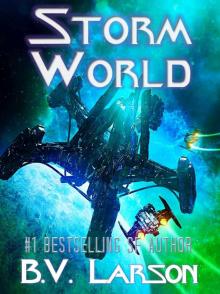 Storm World (Undying Mercenaries Series Book 10)
Storm World (Undying Mercenaries Series Book 10)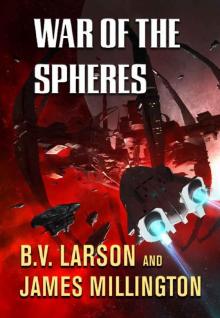 War of the Spheres
War of the Spheres MECH EBOOK
MECH EBOOK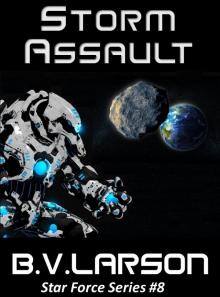 Storm Assault (Star Force Series)
Storm Assault (Star Force Series)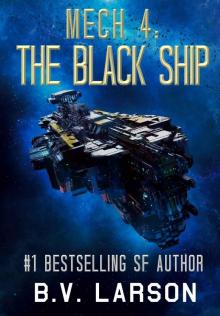 Mech 4: The Black Ship (Imperium Series Book 5)
Mech 4: The Black Ship (Imperium Series Book 5)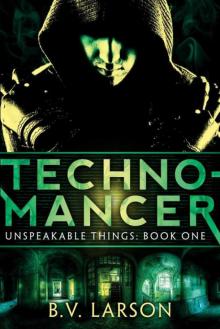 Technomancer
Technomancer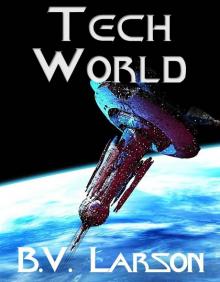 Tech World
Tech World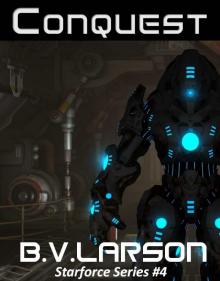 Conquest (Star Force Series)
Conquest (Star Force Series)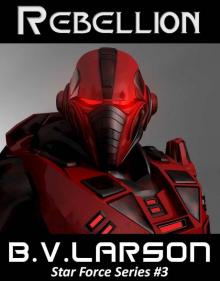 Rebellion sf-3
Rebellion sf-3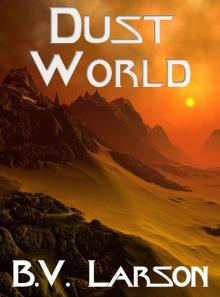 Dust World
Dust World The Dragon Wicked
The Dragon Wicked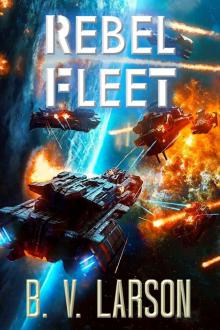 Rebel Fleet
Rebel Fleet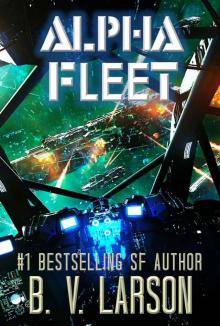 Alpha Fleet (Rebel Fleet Series Book 3)
Alpha Fleet (Rebel Fleet Series Book 3)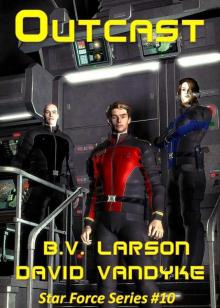 Star Force 10: Outcast
Star Force 10: Outcast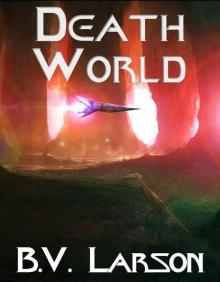 Death World
Death World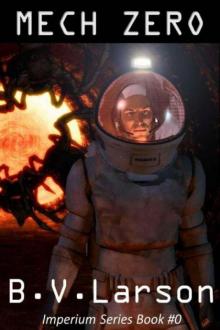 Mech Zero: The Dominant
Mech Zero: The Dominant The Sorcerer's Bane
The Sorcerer's Bane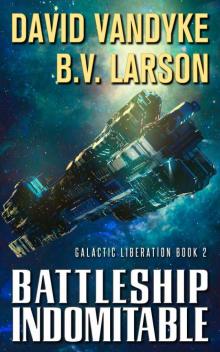 Battleship Indomitable (Galactic Liberation Book 2)
Battleship Indomitable (Galactic Liberation Book 2) Haven Magic
Haven Magic Amber Magic (Haven Series #1)
Amber Magic (Haven Series #1)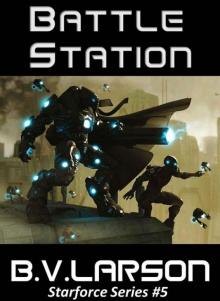 Battle Station sf-5
Battle Station sf-5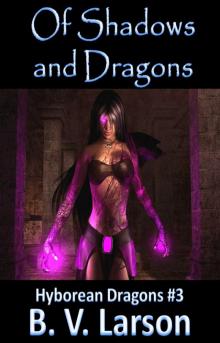 Of Shadows and Dragons
Of Shadows and Dragons Starfire
Starfire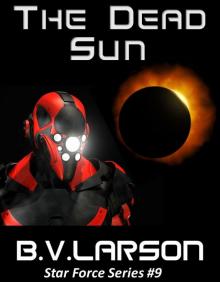 The Dead Sun (Star Force Series)
The Dead Sun (Star Force Series)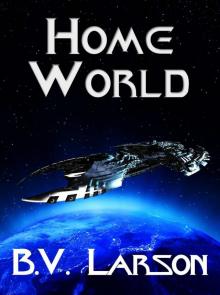 Home World (Undying Mercenaries Series Book 6)
Home World (Undying Mercenaries Series Book 6)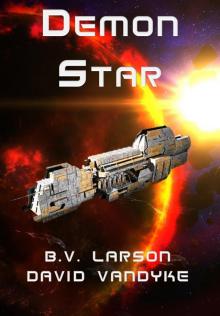 Star Force 12 Demon Star
Star Force 12 Demon Star Dream Magic
Dream Magic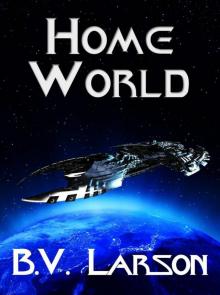 Home World
Home World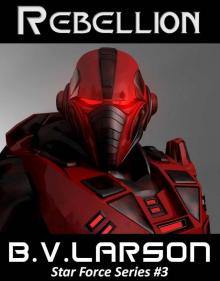 Rebellion Ebook Full
Rebellion Ebook Full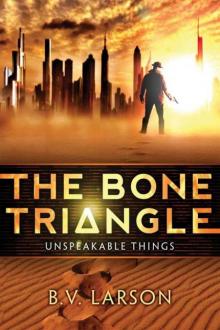 The Bone Triangle
The Bone Triangle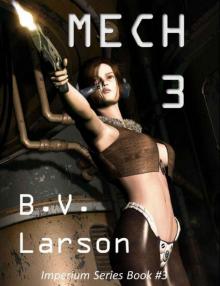 The Empress i-3
The Empress i-3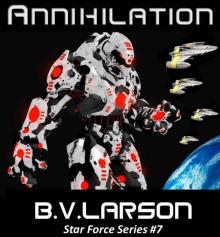 Annihilation (Star Force Series)
Annihilation (Star Force Series)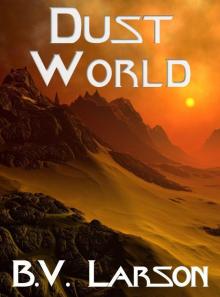 Undying Mercenaries 2: Dust World
Undying Mercenaries 2: Dust World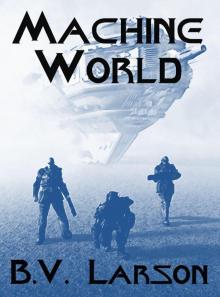 Machine World
Machine World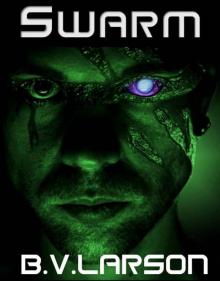 Swarm
Swarm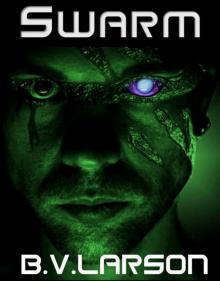 Swarm sf-1
Swarm sf-1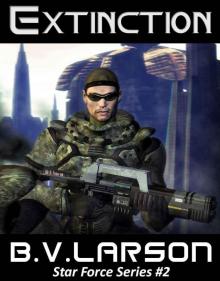 Extinction sf-2
Extinction sf-2 Amber Magic h-1
Amber Magic h-1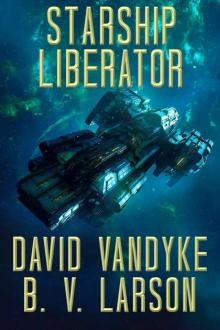 Starship Liberator
Starship Liberator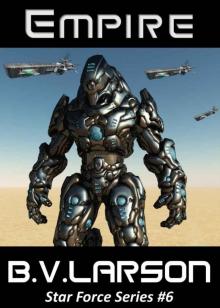 Empire Ebook Full
Empire Ebook Full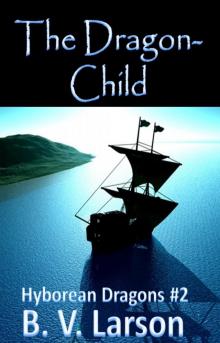 The Dragon-Child
The Dragon-Child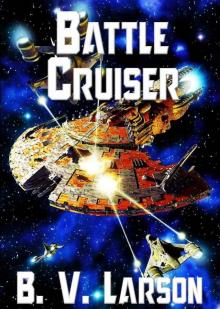 Battle Cruiser
Battle Cruiser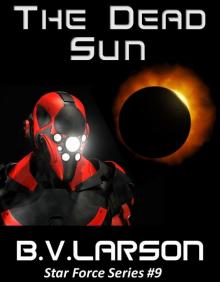 The Dead Sun
The Dead Sun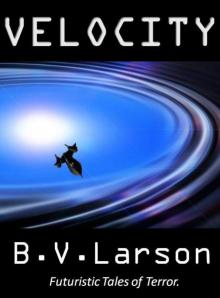 Velocity
Velocity Creatures
Creatures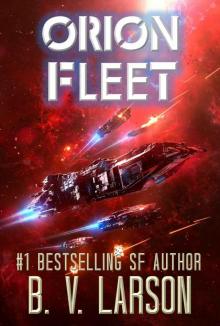 Orion Fleet (Rebel Fleet Series Book 2)
Orion Fleet (Rebel Fleet Series Book 2)